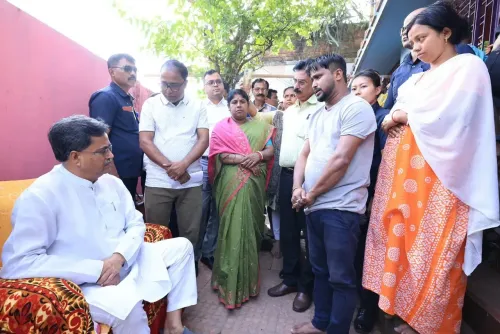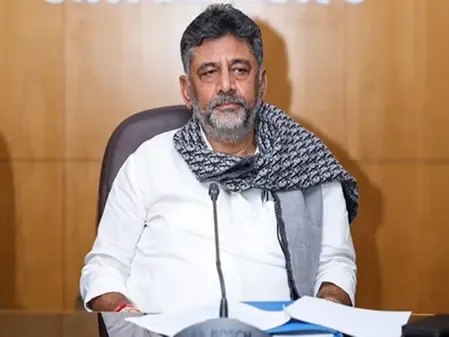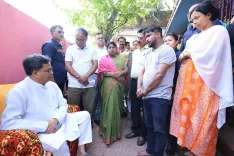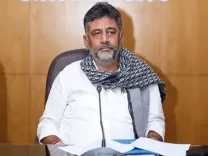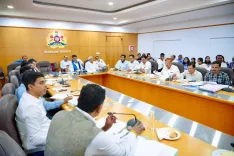What Developments Are India and Australia Discussing in Nuclear and Disarmament Matters?
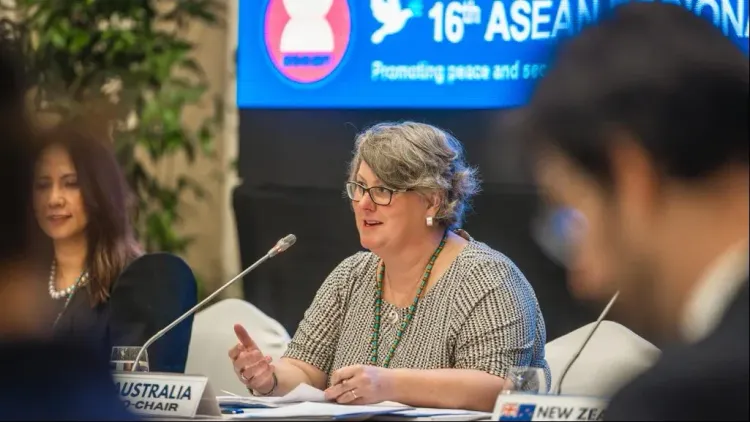
Synopsis
Key Takeaways
- India and Australia are enhancing cooperation in disarmament and non-proliferation.
- The dialogue represents a commitment to a stable Indo-Pacific region.
- High-level meetings reinforce bilateral defense ties between the two nations.
- Focus on emerging technologies, including Artificial Intelligence in military applications.
- Both nations prioritize mutual understanding of security perspectives.
New Delhi, Aug 12 (NationPress) India and Australia conducted the seventh round of Dialogue on Disarmament, Non-Proliferation, and Export Control in New Delhi on Tuesday. The discussions revolved around advancements in nuclear, chemical, and biological disarmament, alongside non-proliferation, outer space security issues, conventional weaponry, and the role of Artificial Intelligence (AI) in military applications, as well as multilateral export control frameworks.
The Indian delegation was led by Muanpuii Saiawi, Joint Secretary (Disarmament and International Security Affairs) at the Ministry of External Affairs, while the Australian side was headed by Vanessa Wood, Ambassador for Arms Control and Counter-Proliferation from the Department of Foreign Affairs and Trade.
The Dialogue fostered a deeper mutual understanding of national viewpoints and global trends regarding non-proliferation and disarmament, contributing positively to the India-Australia Comprehensive Strategic Partnership, as noted by the Ministry of External Affairs (MEA).
Additionally, General Upendra Dwivedi, Chief of the Army Staff, met with Lieutenant General Simon Stuart, Chief of the Australian Army, during Stuart's visit from August 11-14 in New Delhi. This trip aims to bolster bilateral defense ties and enhance strategic cooperation.
The visit began with a solemn wreath-laying ceremony at the National War Memorial, where General Stuart honored the fallen heroes of the Indian Armed Forces. This was succeeded by a Guard of Honour at South Block and a formal meeting with General Upendra Dwivedi.
General Stuart was briefed on India’s security perspective, including Operation Sindoor, and recent technological advancements in the Indian Army.
He also engaged with senior military leaders, including General Anil Chauhan, Chief of Defence Staff; Admiral Dinesh Kumar Tripathi, Chief of Naval Staff; Air Marshal Amar Preet Singh, Chief of Air Staff; and Rajesh Kumar, Defence Secretary.
On August 13 and 14, General Stuart will travel to Pune to meet with Lieutenant General Dhiraj Seth, General Officer Commanding-in-Chief of the Southern Command, and will visit the National Defence Academy in Khadakwasla.
During his visit, he is expected to speak to cadets about leadership, joint training, and cooperation. He will also take part in various defense collaboration activities throughout his two-day stay, as per the statement.
This high-profile visit underscores the robust and evolving India–Australia defense partnership and highlights both nations' dedication to a stable, secure, and rules-based Indo-Pacific region.

